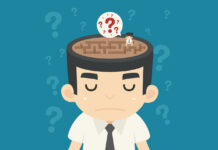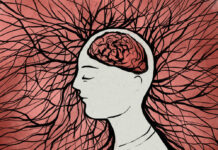The Consciousness of Voices and Visions
Alan Robinson reviews a 30-year journey working with his voices and visions in directing actors and creative writing.
The Two Earliest Stories of Recovery in Oregon
In the early 19th century, frontiersmen Pelton and Day experienced recovery from "mental illness" after traumatic experiences.
Seriously Misleading Testimony by Psychiatry Professor in Oslo District Court About the Effect of...
Lawsuits are a means to obtain changes in an inhumane psychiatry.
Smoke ‘Em if You Got ‘Em: Rethinking Smoking as a Trauma Response
For people with trauma-impacted brains, smoking is a tool to quiet an ever-present storm.
Beyond the Chemical Imbalance: Looking to the Past to Understand the Mental Health Crisis
Our bodies and minds evolved to thrive in an environment that is vastly different from the one in which a majority of us now live.
Ward 362: On Meeting People in Sorrow
There is no understanding that we have the need for comfort and support. Our feelings are not allowed; they are reduced to medical symptoms.
A Bicultural Māori/European Vision for a Truly Healing Hospital
Our therapies need to treat the root causes of mental distress—especially trauma and environment—and not just numb the pain.
The Trauma Craze: How the Expansion of Trauma Diagnoses Fueled Victimhood Culture
Exploring the paradox of increasing trauma diagnoses in a safer world and the proliferation of trauma culture.
Irrational Polypharmacy: How Integrated Mental Health Treatment Can Help
Drug-first treatment overlooks the underlying circumstances that contributed to the development of mental health issues in the first place.
Is Virtual Psychotherapy of Lesser Quality Than In-Person?
Are therapists contributing to the depersonalization and loneliness that has hollowed out social life in our culture in general?
Is There Transformative Meaning in Madness?
How do some people find and harness transformative meaning in their experiences conceptualised as psychosis by clinical psychiatry?
I Accuse Psychiatry of Murder
My beloved friend Geoffrey could have contributed so much to the world if psychiatrists had not murdered him.
How I Developed a Critical Perspective on Psychiatry
I saw many people admitted to psychiatric wards having suffered a recent or past trauma, only to leave with prescriptions for multiple drugs.
Dismantling the Psychiatric Monopoly: Why We Need an Alternative
A speech given at the annual Danish Psychiatry Top Summit conference on the theme "New winds are blowing."
The Emperor’s New Clothes? The Psychiatrist as Expert in a Post-Modern World
Psychiatry has fallen to too many fads and abusive treatments over the decades to hold current treatments with any confidence.
My Impressions of Psychiatry
People who are given the diagnosis of “schizophrenia” are the last social group not to be accepted by the public.
Gender and Psychiatry: Pathologized Emotions
Our emotions in response to violence, lack of recognition, moral or sexual attack are defined as "mental illness" by psychiatry.
Why I Stopped Taking Antidepressants—and Was It Worth It?
I had no idea what I was getting myself into or how difficult it would later be to break free from the cocktail of medications.
How We Started the Bay Area Hearing Voices Network
Voice hearers have created a community. Often, for the first time, they feel safe to talk about their experiences and reach out for support.
The Core Error of Psychiatrists and Psychologists: Certainty about “Consensus Reality”
Mental health professionals are selected and socialized to accept consensus reality and see a lack of adjustment to it as "mental illness."
“What Matters to You?” – An Antidote to “What’s Wrong” and “What Happened”
Both ‘what’s wrong with you?’ and ‘what’s happened to you’ risk sidelining people’s own understandings and solutions.
So-Called Suicide Experts Recommend Antidepressants, Which Increase Suicides
They are biased towards drug use and cherry-pick the studies they quote even when they call their reviews systematic.
A Case for Parallel Mental Health Care
Can people turn against the psychiatric priesthood and find the answers within themselves and their own communities?
Greater Role for Experts by Experience in the Dialogue on Euthanasia in Cases of...
A letter from those experts by experience.
New Guidelines on How to Accurately Convey ADHD Information
The guidelines explain what research on ADHD has found, strengths and limitations, and more accurate ways to express what it means.

































